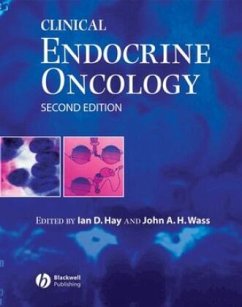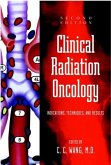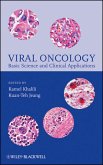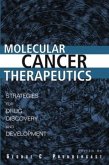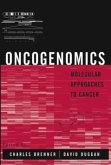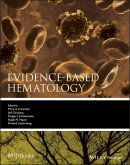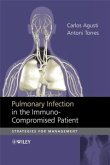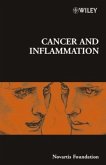- Gebundenes Buch
- Merkliste
- Auf die Merkliste
- Bewerten Bewerten
- Teilen
- Produkt teilen
- Produkterinnerung
- Produkterinnerung
Clinical Endocrine Oncology Second Edition
Edited by
Ian D. Hay, BSc, MB, PhD, FACE, FACP, FRCP, FRCPI (Hon) Professor of Medicine and Dr R.F. Emslander Professor ofEndocrinology Research, Mayo Clinic College of Medicine, andConsultant in Endocrinology and Internal Medicine, Mayo Clinic,Rochester, Minnesota, USA.
A truly comprehensive reference for the management of patients with endocrine cancer
The new edition of Clinical Endocrine Oncology has been fully revised and extended making it the most comprehensive and up-to-date reference available. Written and edited by leading…mehr
Andere Kunden interessierten sich auch für
![Clinical Radiation Oncology Clinical Radiation Oncology]() C. C. Wang (Hrsg.)Clinical Radiation Oncology493,99 €
C. C. Wang (Hrsg.)Clinical Radiation Oncology493,99 €![Viral Oncology Viral Oncology]() Kamel KhaliliViral Oncology233,99 €
Kamel KhaliliViral Oncology233,99 €![Molecular Cancer Therapeutics Molecular Cancer Therapeutics]() George C. Prendergast (Hrsg.)Molecular Cancer Therapeutics197,99 €
George C. Prendergast (Hrsg.)Molecular Cancer Therapeutics197,99 €![Oncogenomics Oncogenomics]() Charles Brenner / David J. Duggan (Hgg.)Oncogenomics168,99 €
Charles Brenner / David J. Duggan (Hgg.)Oncogenomics168,99 €![Evidence-Based Hematology Evidence-Based Hematology]() Mark A. CrowtherEvidence-Based Hematology397,99 €
Mark A. CrowtherEvidence-Based Hematology397,99 €![Pulmonary Infection in the Immunocompromised Patient Pulmonary Infection in the Immunocompromised Patient]() Pulmonary Infection in the Immunocompromised Patient231,99 €
Pulmonary Infection in the Immunocompromised Patient231,99 €![Cancer and Inflammation Cancer and Inflammation]() Novartis Foundation SymposiumCancer and Inflammation277,99 €
Novartis Foundation SymposiumCancer and Inflammation277,99 €-
-
-
Clinical Endocrine Oncology
Second Edition
Edited by
Ian D. Hay, BSc, MB, PhD, FACE, FACP, FRCP, FRCPI (Hon)
Professor of Medicine and Dr R.F. Emslander Professor ofEndocrinology Research, Mayo Clinic College of Medicine, andConsultant in Endocrinology and Internal Medicine, Mayo Clinic,Rochester, Minnesota, USA.
A truly comprehensive reference for the management of patients with endocrine cancer
The new edition of Clinical Endocrine Oncology has been fully revised and extended making it the most comprehensive and up-to-date reference available. Written and edited by leading international experts in the field, it sets the standard in multidisciplinary care for patients with endocrine tumors.
The book provides specific and detailed guidance on the basic, clinical, investigative and therapeutic processes required for the thorough evaluation of a patient with a tumor in an endocrine organ. The eighty-four chapters are arranged in seven parts:
_ Endocrine Oncology and Therapeutic Options
_ Thyroid and Parathyroid Tumors
_ Pituitary and Hypothalamic Lesions
_ Adrenal and Gonadal Tumors
_ Neuroendocrine Tumors and the Clinical Syndromes
_ Medical Syndromes and Endocrine Neoplasia
_ Endocrine-responsive Tumors and Female Reproductive Hormone Therapy.
This authoritative and practical text will be an invaluable resource for all those working in the field, including endocrinologists, medical oncologists, surgeons, radiation therapists, interventional radiologists, specialist nurses, and clinical scientists.
John A.H. Wass is joined in this edition by a new editor, Ian D. Hay, Professor of Medicine and Endocrinology Research at the Mayo Clinic College of Medicine, Rochester, Minnesota, USA.
Hinweis: Dieser Artikel kann nur an eine deutsche Lieferadresse ausgeliefert werden.
Second Edition
Edited by
Ian D. Hay, BSc, MB, PhD, FACE, FACP, FRCP, FRCPI (Hon)
Professor of Medicine and Dr R.F. Emslander Professor ofEndocrinology Research, Mayo Clinic College of Medicine, andConsultant in Endocrinology and Internal Medicine, Mayo Clinic,Rochester, Minnesota, USA.
A truly comprehensive reference for the management of patients with endocrine cancer
The new edition of Clinical Endocrine Oncology has been fully revised and extended making it the most comprehensive and up-to-date reference available. Written and edited by leading international experts in the field, it sets the standard in multidisciplinary care for patients with endocrine tumors.
The book provides specific and detailed guidance on the basic, clinical, investigative and therapeutic processes required for the thorough evaluation of a patient with a tumor in an endocrine organ. The eighty-four chapters are arranged in seven parts:
_ Endocrine Oncology and Therapeutic Options
_ Thyroid and Parathyroid Tumors
_ Pituitary and Hypothalamic Lesions
_ Adrenal and Gonadal Tumors
_ Neuroendocrine Tumors and the Clinical Syndromes
_ Medical Syndromes and Endocrine Neoplasia
_ Endocrine-responsive Tumors and Female Reproductive Hormone Therapy.
This authoritative and practical text will be an invaluable resource for all those working in the field, including endocrinologists, medical oncologists, surgeons, radiation therapists, interventional radiologists, specialist nurses, and clinical scientists.
John A.H. Wass is joined in this edition by a new editor, Ian D. Hay, Professor of Medicine and Endocrinology Research at the Mayo Clinic College of Medicine, Rochester, Minnesota, USA.
Hinweis: Dieser Artikel kann nur an eine deutsche Lieferadresse ausgeliefert werden.
Produktdetails
- Produktdetails
- Verlag: Blackwell Publishers
- 2. Aufl.
- Seitenzahl: 664
- Erscheinungstermin: 1. Mai 2008
- Englisch
- Abmessung: 275mm x 225mm x 37mm
- Gewicht: 2130g
- ISBN-13: 9781405145848
- ISBN-10: 1405145846
- Artikelnr.: 22955822
- Herstellerkennzeichnung
- Produktsicherheitsverantwortliche/r
- Europaallee 1
- 36244 Bad Hersfeld
- gpsr@libri.de
- Verlag: Blackwell Publishers
- 2. Aufl.
- Seitenzahl: 664
- Erscheinungstermin: 1. Mai 2008
- Englisch
- Abmessung: 275mm x 225mm x 37mm
- Gewicht: 2130g
- ISBN-13: 9781405145848
- ISBN-10: 1405145846
- Artikelnr.: 22955822
- Herstellerkennzeichnung
- Produktsicherheitsverantwortliche/r
- Europaallee 1
- 36244 Bad Hersfeld
- gpsr@libri.de
Ian D. Hay, Professor of Medicine, Mayo Clinic College of Medicine, Rochester, MN, USA. A Glasgow graduate, Professor Hay has spent the majority of his career in the USA, winning the Randall G. Sprague Award for Outstanding Achievement as a Subspecialty Trainee in Endocrinology from the Mayo Clinic in 1981. He has been recognised with thirteen awards throughout his career, the latest one being the Prix de la Journee de Medecine Nucleaire from the l'Institut Gustave Roussy, Villejuif, France in 1997. He is also a contributor to Williams' Textbook of Endocrinology. John A.H. Wass, Professor of Endocrinology, The Oxford Centre for Diabetes, Endocrinology & Metabolism, Oxford, UK. Current President of the European Federation of Endocrine Societies and President of the Society for Endocrinology (UK). Co-Editor of The Oxford Textbook of Endocrinology and Diabetes (published 2002) and The Oxford Handbook of Endocrinology and Diabetes (published August 2002).
List of Contributors.
Foreword.
Preface.
Endocrinology, the Hertz Brothers, and the History of Cancer.
Part I: Endocrine Oncology and Therapeutic Options:.
1 Structure and Development of the Endocrine System: John F. Morris
(University of Oxford).
2 Epidemiology of Endocrine Tumors: Amanda Nicholson (University College
London).
3 Inherited Cancers, Genes, and Chromosomes: Emma R. Woodward (Birmingham
Women's Hospital) and Eamonn R. Maher (Birmingham Women's Hospital).
4 Hormones, Growth Factors, and Tumor Growth: Andrew G. Renehan (Christie
Hospital NHS Trust, Manchester).
5 Genetic Counseling and Clinical Cancer Genetics: Lucy Side (Churchill
Hospital, Oxford).
6 Prospects for Gene Therapy for Endocrine Malignancies: Christine Spitzweg
(Ludwig-Maximilians-University Munich), Ian D. Hay (Mayo Clinic, Rochester,
USA), and John C. Morris (Mayo Clinic College of Medicine, Rochester, USA).
7 Tumor Targeting: Mona Waterhouse (St Bartholomew's Hospital, London) and
Ashley B. Grossman (St Bartholomew's Hospital, London).
8 Techniques in Radiation Medicine: P. Nicholas Plowman (St Bartholomew's
Hospital, London).
9 Interventional Radiology: Jane Phillips-Hughes (John Radcliffe Hospital,
Oxford) and Philip Boardman (Churchill Hospital, Oxford).
10 Surgical Management of Endocrine Tumors: Gustavo G. Fernandez Ranvier
(University of California, San Francisco) and Orlo H. Clark (University of
California, San Francisco).
11 Endocrine Tumor Markers: Stefan K.G. Grebe (Mayo Clinic, Rochester).
12 General Management of Cancer Patients: Marcia Hall (Mount Vernon Cancer
Centre, Middlesex).
Part II: Thyroid and Parathyroid Tumors:.
13 Assessment of Thyroid Neoplasia: Kristien Boelaert (Queen Elizabeth
Hospital, Birmingham), Jayne A. Franklyn (University of Birmingham), and
Michael Sheppard (University of Birmingham).
14 Thyroid and Parathyroid Imaging: Conor J. Heaney (Mayo School of
Graduate Medical Education, Rochester, USA) and Gregory A. Wiseman (Mayo
Clinic College of Medicine, Rochester, USA).
15 Pathogenesis of Thyroid Cancer: Jan Zedenius (Karolinska University
Hospital, Stockholm) and Theodoros Foukakis (Karolinska University
Hospital, Stockholm).
16 Papillary Thyroid Carcinoma: Ian D. Hay (Mayo Clinic, Rochester, USA).
17 Follicular Thyroid Carcinoma: Manisha H. Shah (The Ohio State
University) and Matthew D. Ringel (The Ohio State University).
18 Anaplastic Thyroid Carcinoma: Richard T. Kloos (The Arthur G James
Cancer Hospital and Solove Research Center, Columbus).
19 Thyroid Lymphoma: Christopher M. Nutting (Royal Marsden Hospital,
London) and Kevin J. Harrington (Cancer Research UK Centre for Cell and
Molecular Biology, London).
20 Radiation-induced Thyroid Tumors: David H. Sarne (University of Illinois
at Chicago) and Arthur Schneider (University of Illinois at Chicago).
21 Parathyroid Adenomas and Hyperplasia: Bart L. Clarke (Mayo Clinic
College of Medicine, Rochester).
22 Parathyroid Carcinoma: Göran Åkerström (University Hospital, Uppsala,
Sweden), Per Hellman (University of Uppsala, Sweden), and Peyman Björklund
(University of Uppsala, Sweden).
Part III: Pituitary and Hypothalamic Lesions:.
23 Molecular Pathogenesis of Pituitary Adenomas: Ines Donangelo (University
of California Los Angeles) and Shlomo Melmed (University of California Los
Angeles).
24 Functional Assessment of the Pituitary: John S. Bevan (Aberdeen Royal
Infirmary).
25 Imaging of the Pituitary and Hypothalamus: James V. Byrne (John
Radcliffe Hospital, Oxford).
26 Pathology of Tumors of the Pituitary: Eva Horvath (St. Michael's
Hospital, Toronto) and Kalman Kovacs (St. Michael's Hospital, Toronto).
27 Surgery for Pituitary Tumors: Simon A. Cudlip (John Radcliffe Hospital,
Oxford).
28 Pituitary Radiotherapy: P. Nicholas Plowman (St Bartholomew's Hospital,
London).
29 Prolactinomas: Mary P. Gillam (Northwestern University Feinberg School
of Medicine, Chicago) and Mark E. Molitch (Northwestern University Feinberg
School of Medicine, Chicago).
30 Acromegaly: John A.H. Wass (Churchill Hospital, Oxford).
31 Cushing's Disease: John Newell-Price (University of Sheffield).
32 Non-functioning Pituitary Adenomas and Gonadotropinomas: Maarten O. van
Aken (Erasmus Medical Center, Rotterdam), Aart Jan van der Lelij (Erasmus
Medical Center, Rotterdam), and Steven W.J. Lamberts (Erasmus Medical
Center, Rotterdam).
33 Thyrotropinomas: Paolo Beck-Peccoz (Fondazione Policlinico IRCCS, Milan)
and Luca Persani (Istituto Auxologico Italiano IRCCS, Milan).
34 Pituitary Carcinoma: Olaf Ansorge (John Radcliffe Hospital, Oxford).
35 Pituitary Incidentalomas: Karin Bradley (Bristol Royal Infirmary).
36 Craniopharyngioma: Niki Karavitaki (Churchill Hospital, Oxford).
37 Benign Cysts: Rathke's Cleft Cysts, Mucoceles, Arachnoid Cysts, and
Dermoid and Epidermoid Cysts: Niki Karavitaki (Churchill Hospital, Oxford).
38 Hypothalamic Hamartomas and Gangliocytomas: Lawrence A. Frohman
(University of Illinois at Chicago).
39 Cranial Ependymoma: Silvia Hofer (University Hospital Zürich) and
Michael Brada (The Royal Marsden NHS Trust, London and Sutton).
40 Perisellar Tumors including Chordoma, Optic Nerve Glioma, Meningioma,
Hemangiopericytoma, and Glomus Tumors: David Choi (The National Hospital
for Neurology and Neurosurgery, London) and Alan Crockard (The National
Hospital for Neurology and Neurosurgery, London).
41 Pineal Tumors: Germinomas and Non-germinomatous Germ Cell Tumors: Frank
Saran (Royal Marsden NHS Foundation Trust, Sutton) and Sharon Peoples
(Western General Hospital, Edinburgh).
42 Cavernous Sinus Hemangiomas: Mark E. Linskey (University of California).
43 Langerhans' Cell Histiocytosis: Matthew F. Gorman (University of
California), Michelle Hermiston (UCSF School of Medicine, San Francisco),
and Katherine K. Matthay (UCSF School of Medicine, San Francisco).
44 Pituitary and Hypothalamic Sarcoidosis: Damian G. Morris (The Ipswich
Hospital NHS Trust) and Shern L. Chew (St Bartholomew's Hospital, London).
Part IV: Adrenal and Gonadal Tumors:.
45 Imaging of the Adrenal Glands: Anju Sahdev (St Bartholomew's Hospital,
London) and Rodney H. Reznek (Barts and The London School of Medicine and
Dentistry).
46 Pheochromocytoma: Andrew Solomon (Royal Free Hospital, London) and
Pierre Bouloux (Royal Free and University College Medical School, London).
47 Peripheral Neuroblastic Tumors: Bruno De Bernardi (Giannina Gaslini
Children's Hospital), Vito Pistoia (Giannina Gaslini Children's Hospital),
Claudio Gambini (Giannina Gaslini Children's Hospital), and Claudio Granata
(Giannina Gaslini Children's Hospital).
48 Primary Hyperaldosteronism: Mark Sherlock (University of Birmingham) and
Paul M. Stewart (University of Birmingham).
49 Adrenal Causes of Cushing's Syndrome: John R. Lindsay (Altnagelvin Area
Hospital, Londonderry) and A. Brew Atkinson (Royal Victoria Hospital,
Belfast).
50 Adrenal Incidentalomas: Maria Verena Cicala (University of Padua),
Pierantonio Conton (University of Padua), Anna Patalano (University of
Padua), and Franco Mantero (University of Padua).
51 Androgen-secreting Tumors: Quirinius Barnor (University College London
Hospitals), Tom R. Kurzawinski (University College London Hospitals), and
Gerard S. Conway (University College London Hospitals).
52 Functional Ovarian Tumors: Nia Jane Taylor (The John Radcliffe Hospital,
Oxford) and Niall Richard Moore (University of Oxford).
53 Endocrine Aspects of Ovarian Tumors: John H. Shepherd (Royal Marsden
Hospital, London) and Lisa Wong (Royal Marsden Hospital, London).
54 Testicular Germ Cell Cancers: R. Timothy D. Oliver (St Bartholomew's
Hospital, London).
55 Neoplasia and Intersex States: Sabine E. Hannema (Juliana Children's
Hospital, The Hague) and Ieuan A. Hughes (University of Cambridge).
56 Gestational Trophoblastic Neoplasia: Tim Crook (Charing Cross Hospital)
and Michael J. Seckl (Hammersmith Hospitals Campus of Imperial College
London).
Part V: Neuroendocrine Tumors and the Clinical Syndromes:.
57 Classification of Neuroendocrine Tumors: Adeel Ansari (Hammersmith
Hospital Campus, Imperial College London), Karim Meeran (Imperial College
London), and Stephen R. Bloom (Imperial College London).
58 Imaging of Gastrointestinal Neuroendocrine Tumors: Andrew F. Scarsbrook
(St James's University Hospital) and Rachel R. Phillips (University of
Oxford).
59 Insulinomas and Hypoglycemia: Adrian Vella (Mayo Clinic College of
Medicine, Rochester, USA) and F. John Service (Mayo Clinic College of
Medicine, Rochester, USA).
60 Gastrinomas (Zollinger-Ellison Syndrome): Matthew L. White (St. Joseph
Mercy Hospital, Ann Arbor, Michigan) and Gerard M. Doherty (University of
Michigan).
61 VIPomas: Vian Amber (Imperial College London) and Stephen R. Bloom
(Imperial College London).
62 Glucagonomas: Niamh M. Martin (Imperial College London), Karim Meeran
(Imperial College London), and Stephen R. Bloom (Imperial College London).
63 Somatostatinomas: John A.H. Wass (Churchill Hospital, Oxford).
64 Lung and Thymic Neuroendocrine Tumors: Dan Granberg (University
Hospital, Uppsala, Sweden) and Kjell Öberg (University Hospital, Uppsala,
Sweden).
65 Carcinoid Syndrome: Thorvardur R. Halfdanarson (Mayo Clinic College of
Medicine, Rochester, USA) and Timothy J. Hobday (Mayo Clinic, Rochester,
USA).
66 Appendiceal and Hindgut Carcinoids: Humphrey J.F. Hodgson (Royal Free
and University College School of Medicine, London).
67 Chemotherapy for Neuroendocrine Tumors: Rebecca L. Bowen (St
Bartholomew's Hospital, London) and Maurice L. Slevin (St Bartholomew's
Hospital, London).
Part VI: Medical Syndromes and Endocrine Neoplasia:.
68 Multiple Endocrine Neoplasia Type 1 (MEN 1): Cornelis J.M. Lips
(University Medical Center, Utrecht), Koen M.A. Dreijerink (University
Medical Center, Utrecht), Gerlof D. Valk (University Medical Center,
Utrecht), and Jo W.M. Höppener (University Medical Center Utrecht).
69 Medullary Thyroid Carcinoma and Associated Multiple Endocrine Neoplasia
Type 2: Clive S. Grant (Mayo Clinic, USA).
70 von Hippel-Lindau Disease: Shern L. Chew (St Bartholomew's Hospital,
London) and Eamonn R. Maher (University of Birmingham School of Medicine).
71 Neurofibromatosis Type 1: Vincent M. Riccardi (The Neurofibromatosis
Institute, California).
72 Carney Complex: Constantine A. Stratakis (National Institutes of Health,
USA).
73 McCune-Albright Syndrome: William F. Schwindinger (Geisinger Clinic
Danville, USA) and Michael A. Levine (Cleveland Clinic Children's
Hospital).
74 Cowden Syndrome: Ingrid Witters (University Hospital of Leuven, Belgium)
and Jean-Pierre Fryns (University Hospital of Leuven).
75 Paraneoplastic Syndromes: David William Ray (University of Manchester).
76 Syndrome of Inappropriate Antidiuretic Hormone Secretion: Rachel K.
Crowley (Beaumont Hospital, Dublin) and Chris Thompson (Beaumont Hospital).
77 Hypercalcemia of Malignancy: Gregory R. Mundy (Vanderbilt Center for
Bone Biology, USA), Babatunde Oyajobi (University of Texas), Susan
Padalecki (University of Texas),.
and Julie A. Sterling (Vanderbilt University, USA).
78 Syndrome of Ectopic ACTH Secretion: Marie-Laure Raffin-Sanson (Hôpital
Ambroise Paré, Boulogne, France), Hélène Fierrard (Hôpital Ambroise Paré,
Boulogne, France),.
and Xavier Bertagna (Université Paris Descartes, France).
79 Insulin-like Growth Factors and Tumor Hypoglycemia: Robert C. Baxter
(University of Sydney).
80 Metastatic and Other Extraneous Neoplasms in Endocrine Organs: Ian D.
Buley (Torbay Hospital, UK).
81 Endocrine Late Effects of Cancer Therapy: Robert D. Murray (Leeds
Teaching Hospitals NHS Trust).
Part 7: Endocrine-responsive Tumors and Female Reproductive Hormone
Therapy.
82 Endocrine-responsive Tumors: Prostate Cancer: Sarah Ngan (Imperial
College London), Ana Arance (Hammersmith Hospital, London), and Jonathan
Waxman (Imperial College London).
83 Endocrine Therapy in Breast Cancer Management: Andrew M. Wardley
(Christie Hospital, Manchester).
84 Female Reproductive Hormone Therapy: Risks and Benefits: Toral Gathani
(University of Oxford), Jane Green (University of Oxford), and Valerie
Beral (University of Oxford).
Appendix of conversion units.
Index.
Color plate section
Foreword.
Preface.
Endocrinology, the Hertz Brothers, and the History of Cancer.
Part I: Endocrine Oncology and Therapeutic Options:.
1 Structure and Development of the Endocrine System: John F. Morris
(University of Oxford).
2 Epidemiology of Endocrine Tumors: Amanda Nicholson (University College
London).
3 Inherited Cancers, Genes, and Chromosomes: Emma R. Woodward (Birmingham
Women's Hospital) and Eamonn R. Maher (Birmingham Women's Hospital).
4 Hormones, Growth Factors, and Tumor Growth: Andrew G. Renehan (Christie
Hospital NHS Trust, Manchester).
5 Genetic Counseling and Clinical Cancer Genetics: Lucy Side (Churchill
Hospital, Oxford).
6 Prospects for Gene Therapy for Endocrine Malignancies: Christine Spitzweg
(Ludwig-Maximilians-University Munich), Ian D. Hay (Mayo Clinic, Rochester,
USA), and John C. Morris (Mayo Clinic College of Medicine, Rochester, USA).
7 Tumor Targeting: Mona Waterhouse (St Bartholomew's Hospital, London) and
Ashley B. Grossman (St Bartholomew's Hospital, London).
8 Techniques in Radiation Medicine: P. Nicholas Plowman (St Bartholomew's
Hospital, London).
9 Interventional Radiology: Jane Phillips-Hughes (John Radcliffe Hospital,
Oxford) and Philip Boardman (Churchill Hospital, Oxford).
10 Surgical Management of Endocrine Tumors: Gustavo G. Fernandez Ranvier
(University of California, San Francisco) and Orlo H. Clark (University of
California, San Francisco).
11 Endocrine Tumor Markers: Stefan K.G. Grebe (Mayo Clinic, Rochester).
12 General Management of Cancer Patients: Marcia Hall (Mount Vernon Cancer
Centre, Middlesex).
Part II: Thyroid and Parathyroid Tumors:.
13 Assessment of Thyroid Neoplasia: Kristien Boelaert (Queen Elizabeth
Hospital, Birmingham), Jayne A. Franklyn (University of Birmingham), and
Michael Sheppard (University of Birmingham).
14 Thyroid and Parathyroid Imaging: Conor J. Heaney (Mayo School of
Graduate Medical Education, Rochester, USA) and Gregory A. Wiseman (Mayo
Clinic College of Medicine, Rochester, USA).
15 Pathogenesis of Thyroid Cancer: Jan Zedenius (Karolinska University
Hospital, Stockholm) and Theodoros Foukakis (Karolinska University
Hospital, Stockholm).
16 Papillary Thyroid Carcinoma: Ian D. Hay (Mayo Clinic, Rochester, USA).
17 Follicular Thyroid Carcinoma: Manisha H. Shah (The Ohio State
University) and Matthew D. Ringel (The Ohio State University).
18 Anaplastic Thyroid Carcinoma: Richard T. Kloos (The Arthur G James
Cancer Hospital and Solove Research Center, Columbus).
19 Thyroid Lymphoma: Christopher M. Nutting (Royal Marsden Hospital,
London) and Kevin J. Harrington (Cancer Research UK Centre for Cell and
Molecular Biology, London).
20 Radiation-induced Thyroid Tumors: David H. Sarne (University of Illinois
at Chicago) and Arthur Schneider (University of Illinois at Chicago).
21 Parathyroid Adenomas and Hyperplasia: Bart L. Clarke (Mayo Clinic
College of Medicine, Rochester).
22 Parathyroid Carcinoma: Göran Åkerström (University Hospital, Uppsala,
Sweden), Per Hellman (University of Uppsala, Sweden), and Peyman Björklund
(University of Uppsala, Sweden).
Part III: Pituitary and Hypothalamic Lesions:.
23 Molecular Pathogenesis of Pituitary Adenomas: Ines Donangelo (University
of California Los Angeles) and Shlomo Melmed (University of California Los
Angeles).
24 Functional Assessment of the Pituitary: John S. Bevan (Aberdeen Royal
Infirmary).
25 Imaging of the Pituitary and Hypothalamus: James V. Byrne (John
Radcliffe Hospital, Oxford).
26 Pathology of Tumors of the Pituitary: Eva Horvath (St. Michael's
Hospital, Toronto) and Kalman Kovacs (St. Michael's Hospital, Toronto).
27 Surgery for Pituitary Tumors: Simon A. Cudlip (John Radcliffe Hospital,
Oxford).
28 Pituitary Radiotherapy: P. Nicholas Plowman (St Bartholomew's Hospital,
London).
29 Prolactinomas: Mary P. Gillam (Northwestern University Feinberg School
of Medicine, Chicago) and Mark E. Molitch (Northwestern University Feinberg
School of Medicine, Chicago).
30 Acromegaly: John A.H. Wass (Churchill Hospital, Oxford).
31 Cushing's Disease: John Newell-Price (University of Sheffield).
32 Non-functioning Pituitary Adenomas and Gonadotropinomas: Maarten O. van
Aken (Erasmus Medical Center, Rotterdam), Aart Jan van der Lelij (Erasmus
Medical Center, Rotterdam), and Steven W.J. Lamberts (Erasmus Medical
Center, Rotterdam).
33 Thyrotropinomas: Paolo Beck-Peccoz (Fondazione Policlinico IRCCS, Milan)
and Luca Persani (Istituto Auxologico Italiano IRCCS, Milan).
34 Pituitary Carcinoma: Olaf Ansorge (John Radcliffe Hospital, Oxford).
35 Pituitary Incidentalomas: Karin Bradley (Bristol Royal Infirmary).
36 Craniopharyngioma: Niki Karavitaki (Churchill Hospital, Oxford).
37 Benign Cysts: Rathke's Cleft Cysts, Mucoceles, Arachnoid Cysts, and
Dermoid and Epidermoid Cysts: Niki Karavitaki (Churchill Hospital, Oxford).
38 Hypothalamic Hamartomas and Gangliocytomas: Lawrence A. Frohman
(University of Illinois at Chicago).
39 Cranial Ependymoma: Silvia Hofer (University Hospital Zürich) and
Michael Brada (The Royal Marsden NHS Trust, London and Sutton).
40 Perisellar Tumors including Chordoma, Optic Nerve Glioma, Meningioma,
Hemangiopericytoma, and Glomus Tumors: David Choi (The National Hospital
for Neurology and Neurosurgery, London) and Alan Crockard (The National
Hospital for Neurology and Neurosurgery, London).
41 Pineal Tumors: Germinomas and Non-germinomatous Germ Cell Tumors: Frank
Saran (Royal Marsden NHS Foundation Trust, Sutton) and Sharon Peoples
(Western General Hospital, Edinburgh).
42 Cavernous Sinus Hemangiomas: Mark E. Linskey (University of California).
43 Langerhans' Cell Histiocytosis: Matthew F. Gorman (University of
California), Michelle Hermiston (UCSF School of Medicine, San Francisco),
and Katherine K. Matthay (UCSF School of Medicine, San Francisco).
44 Pituitary and Hypothalamic Sarcoidosis: Damian G. Morris (The Ipswich
Hospital NHS Trust) and Shern L. Chew (St Bartholomew's Hospital, London).
Part IV: Adrenal and Gonadal Tumors:.
45 Imaging of the Adrenal Glands: Anju Sahdev (St Bartholomew's Hospital,
London) and Rodney H. Reznek (Barts and The London School of Medicine and
Dentistry).
46 Pheochromocytoma: Andrew Solomon (Royal Free Hospital, London) and
Pierre Bouloux (Royal Free and University College Medical School, London).
47 Peripheral Neuroblastic Tumors: Bruno De Bernardi (Giannina Gaslini
Children's Hospital), Vito Pistoia (Giannina Gaslini Children's Hospital),
Claudio Gambini (Giannina Gaslini Children's Hospital), and Claudio Granata
(Giannina Gaslini Children's Hospital).
48 Primary Hyperaldosteronism: Mark Sherlock (University of Birmingham) and
Paul M. Stewart (University of Birmingham).
49 Adrenal Causes of Cushing's Syndrome: John R. Lindsay (Altnagelvin Area
Hospital, Londonderry) and A. Brew Atkinson (Royal Victoria Hospital,
Belfast).
50 Adrenal Incidentalomas: Maria Verena Cicala (University of Padua),
Pierantonio Conton (University of Padua), Anna Patalano (University of
Padua), and Franco Mantero (University of Padua).
51 Androgen-secreting Tumors: Quirinius Barnor (University College London
Hospitals), Tom R. Kurzawinski (University College London Hospitals), and
Gerard S. Conway (University College London Hospitals).
52 Functional Ovarian Tumors: Nia Jane Taylor (The John Radcliffe Hospital,
Oxford) and Niall Richard Moore (University of Oxford).
53 Endocrine Aspects of Ovarian Tumors: John H. Shepherd (Royal Marsden
Hospital, London) and Lisa Wong (Royal Marsden Hospital, London).
54 Testicular Germ Cell Cancers: R. Timothy D. Oliver (St Bartholomew's
Hospital, London).
55 Neoplasia and Intersex States: Sabine E. Hannema (Juliana Children's
Hospital, The Hague) and Ieuan A. Hughes (University of Cambridge).
56 Gestational Trophoblastic Neoplasia: Tim Crook (Charing Cross Hospital)
and Michael J. Seckl (Hammersmith Hospitals Campus of Imperial College
London).
Part V: Neuroendocrine Tumors and the Clinical Syndromes:.
57 Classification of Neuroendocrine Tumors: Adeel Ansari (Hammersmith
Hospital Campus, Imperial College London), Karim Meeran (Imperial College
London), and Stephen R. Bloom (Imperial College London).
58 Imaging of Gastrointestinal Neuroendocrine Tumors: Andrew F. Scarsbrook
(St James's University Hospital) and Rachel R. Phillips (University of
Oxford).
59 Insulinomas and Hypoglycemia: Adrian Vella (Mayo Clinic College of
Medicine, Rochester, USA) and F. John Service (Mayo Clinic College of
Medicine, Rochester, USA).
60 Gastrinomas (Zollinger-Ellison Syndrome): Matthew L. White (St. Joseph
Mercy Hospital, Ann Arbor, Michigan) and Gerard M. Doherty (University of
Michigan).
61 VIPomas: Vian Amber (Imperial College London) and Stephen R. Bloom
(Imperial College London).
62 Glucagonomas: Niamh M. Martin (Imperial College London), Karim Meeran
(Imperial College London), and Stephen R. Bloom (Imperial College London).
63 Somatostatinomas: John A.H. Wass (Churchill Hospital, Oxford).
64 Lung and Thymic Neuroendocrine Tumors: Dan Granberg (University
Hospital, Uppsala, Sweden) and Kjell Öberg (University Hospital, Uppsala,
Sweden).
65 Carcinoid Syndrome: Thorvardur R. Halfdanarson (Mayo Clinic College of
Medicine, Rochester, USA) and Timothy J. Hobday (Mayo Clinic, Rochester,
USA).
66 Appendiceal and Hindgut Carcinoids: Humphrey J.F. Hodgson (Royal Free
and University College School of Medicine, London).
67 Chemotherapy for Neuroendocrine Tumors: Rebecca L. Bowen (St
Bartholomew's Hospital, London) and Maurice L. Slevin (St Bartholomew's
Hospital, London).
Part VI: Medical Syndromes and Endocrine Neoplasia:.
68 Multiple Endocrine Neoplasia Type 1 (MEN 1): Cornelis J.M. Lips
(University Medical Center, Utrecht), Koen M.A. Dreijerink (University
Medical Center, Utrecht), Gerlof D. Valk (University Medical Center,
Utrecht), and Jo W.M. Höppener (University Medical Center Utrecht).
69 Medullary Thyroid Carcinoma and Associated Multiple Endocrine Neoplasia
Type 2: Clive S. Grant (Mayo Clinic, USA).
70 von Hippel-Lindau Disease: Shern L. Chew (St Bartholomew's Hospital,
London) and Eamonn R. Maher (University of Birmingham School of Medicine).
71 Neurofibromatosis Type 1: Vincent M. Riccardi (The Neurofibromatosis
Institute, California).
72 Carney Complex: Constantine A. Stratakis (National Institutes of Health,
USA).
73 McCune-Albright Syndrome: William F. Schwindinger (Geisinger Clinic
Danville, USA) and Michael A. Levine (Cleveland Clinic Children's
Hospital).
74 Cowden Syndrome: Ingrid Witters (University Hospital of Leuven, Belgium)
and Jean-Pierre Fryns (University Hospital of Leuven).
75 Paraneoplastic Syndromes: David William Ray (University of Manchester).
76 Syndrome of Inappropriate Antidiuretic Hormone Secretion: Rachel K.
Crowley (Beaumont Hospital, Dublin) and Chris Thompson (Beaumont Hospital).
77 Hypercalcemia of Malignancy: Gregory R. Mundy (Vanderbilt Center for
Bone Biology, USA), Babatunde Oyajobi (University of Texas), Susan
Padalecki (University of Texas),.
and Julie A. Sterling (Vanderbilt University, USA).
78 Syndrome of Ectopic ACTH Secretion: Marie-Laure Raffin-Sanson (Hôpital
Ambroise Paré, Boulogne, France), Hélène Fierrard (Hôpital Ambroise Paré,
Boulogne, France),.
and Xavier Bertagna (Université Paris Descartes, France).
79 Insulin-like Growth Factors and Tumor Hypoglycemia: Robert C. Baxter
(University of Sydney).
80 Metastatic and Other Extraneous Neoplasms in Endocrine Organs: Ian D.
Buley (Torbay Hospital, UK).
81 Endocrine Late Effects of Cancer Therapy: Robert D. Murray (Leeds
Teaching Hospitals NHS Trust).
Part 7: Endocrine-responsive Tumors and Female Reproductive Hormone
Therapy.
82 Endocrine-responsive Tumors: Prostate Cancer: Sarah Ngan (Imperial
College London), Ana Arance (Hammersmith Hospital, London), and Jonathan
Waxman (Imperial College London).
83 Endocrine Therapy in Breast Cancer Management: Andrew M. Wardley
(Christie Hospital, Manchester).
84 Female Reproductive Hormone Therapy: Risks and Benefits: Toral Gathani
(University of Oxford), Jane Green (University of Oxford), and Valerie
Beral (University of Oxford).
Appendix of conversion units.
Index.
Color plate section
List of Contributors.
Foreword.
Preface.
Endocrinology, the Hertz Brothers, and the History of Cancer.
Part I: Endocrine Oncology and Therapeutic Options:.
1 Structure and Development of the Endocrine System: John F. Morris
(University of Oxford).
2 Epidemiology of Endocrine Tumors: Amanda Nicholson (University College
London).
3 Inherited Cancers, Genes, and Chromosomes: Emma R. Woodward (Birmingham
Women's Hospital) and Eamonn R. Maher (Birmingham Women's Hospital).
4 Hormones, Growth Factors, and Tumor Growth: Andrew G. Renehan (Christie
Hospital NHS Trust, Manchester).
5 Genetic Counseling and Clinical Cancer Genetics: Lucy Side (Churchill
Hospital, Oxford).
6 Prospects for Gene Therapy for Endocrine Malignancies: Christine Spitzweg
(Ludwig-Maximilians-University Munich), Ian D. Hay (Mayo Clinic, Rochester,
USA), and John C. Morris (Mayo Clinic College of Medicine, Rochester, USA).
7 Tumor Targeting: Mona Waterhouse (St Bartholomew's Hospital, London) and
Ashley B. Grossman (St Bartholomew's Hospital, London).
8 Techniques in Radiation Medicine: P. Nicholas Plowman (St Bartholomew's
Hospital, London).
9 Interventional Radiology: Jane Phillips-Hughes (John Radcliffe Hospital,
Oxford) and Philip Boardman (Churchill Hospital, Oxford).
10 Surgical Management of Endocrine Tumors: Gustavo G. Fernandez Ranvier
(University of California, San Francisco) and Orlo H. Clark (University of
California, San Francisco).
11 Endocrine Tumor Markers: Stefan K.G. Grebe (Mayo Clinic, Rochester).
12 General Management of Cancer Patients: Marcia Hall (Mount Vernon Cancer
Centre, Middlesex).
Part II: Thyroid and Parathyroid Tumors:.
13 Assessment of Thyroid Neoplasia: Kristien Boelaert (Queen Elizabeth
Hospital, Birmingham), Jayne A. Franklyn (University of Birmingham), and
Michael Sheppard (University of Birmingham).
14 Thyroid and Parathyroid Imaging: Conor J. Heaney (Mayo School of
Graduate Medical Education, Rochester, USA) and Gregory A. Wiseman (Mayo
Clinic College of Medicine, Rochester, USA).
15 Pathogenesis of Thyroid Cancer: Jan Zedenius (Karolinska University
Hospital, Stockholm) and Theodoros Foukakis (Karolinska University
Hospital, Stockholm).
16 Papillary Thyroid Carcinoma: Ian D. Hay (Mayo Clinic, Rochester, USA).
17 Follicular Thyroid Carcinoma: Manisha H. Shah (The Ohio State
University) and Matthew D. Ringel (The Ohio State University).
18 Anaplastic Thyroid Carcinoma: Richard T. Kloos (The Arthur G James
Cancer Hospital and Solove Research Center, Columbus).
19 Thyroid Lymphoma: Christopher M. Nutting (Royal Marsden Hospital,
London) and Kevin J. Harrington (Cancer Research UK Centre for Cell and
Molecular Biology, London).
20 Radiation-induced Thyroid Tumors: David H. Sarne (University of Illinois
at Chicago) and Arthur Schneider (University of Illinois at Chicago).
21 Parathyroid Adenomas and Hyperplasia: Bart L. Clarke (Mayo Clinic
College of Medicine, Rochester).
22 Parathyroid Carcinoma: Göran Åkerström (University Hospital, Uppsala,
Sweden), Per Hellman (University of Uppsala, Sweden), and Peyman Björklund
(University of Uppsala, Sweden).
Part III: Pituitary and Hypothalamic Lesions:.
23 Molecular Pathogenesis of Pituitary Adenomas: Ines Donangelo (University
of California Los Angeles) and Shlomo Melmed (University of California Los
Angeles).
24 Functional Assessment of the Pituitary: John S. Bevan (Aberdeen Royal
Infirmary).
25 Imaging of the Pituitary and Hypothalamus: James V. Byrne (John
Radcliffe Hospital, Oxford).
26 Pathology of Tumors of the Pituitary: Eva Horvath (St. Michael's
Hospital, Toronto) and Kalman Kovacs (St. Michael's Hospital, Toronto).
27 Surgery for Pituitary Tumors: Simon A. Cudlip (John Radcliffe Hospital,
Oxford).
28 Pituitary Radiotherapy: P. Nicholas Plowman (St Bartholomew's Hospital,
London).
29 Prolactinomas: Mary P. Gillam (Northwestern University Feinberg School
of Medicine, Chicago) and Mark E. Molitch (Northwestern University Feinberg
School of Medicine, Chicago).
30 Acromegaly: John A.H. Wass (Churchill Hospital, Oxford).
31 Cushing's Disease: John Newell-Price (University of Sheffield).
32 Non-functioning Pituitary Adenomas and Gonadotropinomas: Maarten O. van
Aken (Erasmus Medical Center, Rotterdam), Aart Jan van der Lelij (Erasmus
Medical Center, Rotterdam), and Steven W.J. Lamberts (Erasmus Medical
Center, Rotterdam).
33 Thyrotropinomas: Paolo Beck-Peccoz (Fondazione Policlinico IRCCS, Milan)
and Luca Persani (Istituto Auxologico Italiano IRCCS, Milan).
34 Pituitary Carcinoma: Olaf Ansorge (John Radcliffe Hospital, Oxford).
35 Pituitary Incidentalomas: Karin Bradley (Bristol Royal Infirmary).
36 Craniopharyngioma: Niki Karavitaki (Churchill Hospital, Oxford).
37 Benign Cysts: Rathke's Cleft Cysts, Mucoceles, Arachnoid Cysts, and
Dermoid and Epidermoid Cysts: Niki Karavitaki (Churchill Hospital, Oxford).
38 Hypothalamic Hamartomas and Gangliocytomas: Lawrence A. Frohman
(University of Illinois at Chicago).
39 Cranial Ependymoma: Silvia Hofer (University Hospital Zürich) and
Michael Brada (The Royal Marsden NHS Trust, London and Sutton).
40 Perisellar Tumors including Chordoma, Optic Nerve Glioma, Meningioma,
Hemangiopericytoma, and Glomus Tumors: David Choi (The National Hospital
for Neurology and Neurosurgery, London) and Alan Crockard (The National
Hospital for Neurology and Neurosurgery, London).
41 Pineal Tumors: Germinomas and Non-germinomatous Germ Cell Tumors: Frank
Saran (Royal Marsden NHS Foundation Trust, Sutton) and Sharon Peoples
(Western General Hospital, Edinburgh).
42 Cavernous Sinus Hemangiomas: Mark E. Linskey (University of California).
43 Langerhans' Cell Histiocytosis: Matthew F. Gorman (University of
California), Michelle Hermiston (UCSF School of Medicine, San Francisco),
and Katherine K. Matthay (UCSF School of Medicine, San Francisco).
44 Pituitary and Hypothalamic Sarcoidosis: Damian G. Morris (The Ipswich
Hospital NHS Trust) and Shern L. Chew (St Bartholomew's Hospital, London).
Part IV: Adrenal and Gonadal Tumors:.
45 Imaging of the Adrenal Glands: Anju Sahdev (St Bartholomew's Hospital,
London) and Rodney H. Reznek (Barts and The London School of Medicine and
Dentistry).
46 Pheochromocytoma: Andrew Solomon (Royal Free Hospital, London) and
Pierre Bouloux (Royal Free and University College Medical School, London).
47 Peripheral Neuroblastic Tumors: Bruno De Bernardi (Giannina Gaslini
Children's Hospital), Vito Pistoia (Giannina Gaslini Children's Hospital),
Claudio Gambini (Giannina Gaslini Children's Hospital), and Claudio Granata
(Giannina Gaslini Children's Hospital).
48 Primary Hyperaldosteronism: Mark Sherlock (University of Birmingham) and
Paul M. Stewart (University of Birmingham).
49 Adrenal Causes of Cushing's Syndrome: John R. Lindsay (Altnagelvin Area
Hospital, Londonderry) and A. Brew Atkinson (Royal Victoria Hospital,
Belfast).
50 Adrenal Incidentalomas: Maria Verena Cicala (University of Padua),
Pierantonio Conton (University of Padua), Anna Patalano (University of
Padua), and Franco Mantero (University of Padua).
51 Androgen-secreting Tumors: Quirinius Barnor (University College London
Hospitals), Tom R. Kurzawinski (University College London Hospitals), and
Gerard S. Conway (University College London Hospitals).
52 Functional Ovarian Tumors: Nia Jane Taylor (The John Radcliffe Hospital,
Oxford) and Niall Richard Moore (University of Oxford).
53 Endocrine Aspects of Ovarian Tumors: John H. Shepherd (Royal Marsden
Hospital, London) and Lisa Wong (Royal Marsden Hospital, London).
54 Testicular Germ Cell Cancers: R. Timothy D. Oliver (St Bartholomew's
Hospital, London).
55 Neoplasia and Intersex States: Sabine E. Hannema (Juliana Children's
Hospital, The Hague) and Ieuan A. Hughes (University of Cambridge).
56 Gestational Trophoblastic Neoplasia: Tim Crook (Charing Cross Hospital)
and Michael J. Seckl (Hammersmith Hospitals Campus of Imperial College
London).
Part V: Neuroendocrine Tumors and the Clinical Syndromes:.
57 Classification of Neuroendocrine Tumors: Adeel Ansari (Hammersmith
Hospital Campus, Imperial College London), Karim Meeran (Imperial College
London), and Stephen R. Bloom (Imperial College London).
58 Imaging of Gastrointestinal Neuroendocrine Tumors: Andrew F. Scarsbrook
(St James's University Hospital) and Rachel R. Phillips (University of
Oxford).
59 Insulinomas and Hypoglycemia: Adrian Vella (Mayo Clinic College of
Medicine, Rochester, USA) and F. John Service (Mayo Clinic College of
Medicine, Rochester, USA).
60 Gastrinomas (Zollinger-Ellison Syndrome): Matthew L. White (St. Joseph
Mercy Hospital, Ann Arbor, Michigan) and Gerard M. Doherty (University of
Michigan).
61 VIPomas: Vian Amber (Imperial College London) and Stephen R. Bloom
(Imperial College London).
62 Glucagonomas: Niamh M. Martin (Imperial College London), Karim Meeran
(Imperial College London), and Stephen R. Bloom (Imperial College London).
63 Somatostatinomas: John A.H. Wass (Churchill Hospital, Oxford).
64 Lung and Thymic Neuroendocrine Tumors: Dan Granberg (University
Hospital, Uppsala, Sweden) and Kjell Öberg (University Hospital, Uppsala,
Sweden).
65 Carcinoid Syndrome: Thorvardur R. Halfdanarson (Mayo Clinic College of
Medicine, Rochester, USA) and Timothy J. Hobday (Mayo Clinic, Rochester,
USA).
66 Appendiceal and Hindgut Carcinoids: Humphrey J.F. Hodgson (Royal Free
and University College School of Medicine, London).
67 Chemotherapy for Neuroendocrine Tumors: Rebecca L. Bowen (St
Bartholomew's Hospital, London) and Maurice L. Slevin (St Bartholomew's
Hospital, London).
Part VI: Medical Syndromes and Endocrine Neoplasia:.
68 Multiple Endocrine Neoplasia Type 1 (MEN 1): Cornelis J.M. Lips
(University Medical Center, Utrecht), Koen M.A. Dreijerink (University
Medical Center, Utrecht), Gerlof D. Valk (University Medical Center,
Utrecht), and Jo W.M. Höppener (University Medical Center Utrecht).
69 Medullary Thyroid Carcinoma and Associated Multiple Endocrine Neoplasia
Type 2: Clive S. Grant (Mayo Clinic, USA).
70 von Hippel-Lindau Disease: Shern L. Chew (St Bartholomew's Hospital,
London) and Eamonn R. Maher (University of Birmingham School of Medicine).
71 Neurofibromatosis Type 1: Vincent M. Riccardi (The Neurofibromatosis
Institute, California).
72 Carney Complex: Constantine A. Stratakis (National Institutes of Health,
USA).
73 McCune-Albright Syndrome: William F. Schwindinger (Geisinger Clinic
Danville, USA) and Michael A. Levine (Cleveland Clinic Children's
Hospital).
74 Cowden Syndrome: Ingrid Witters (University Hospital of Leuven, Belgium)
and Jean-Pierre Fryns (University Hospital of Leuven).
75 Paraneoplastic Syndromes: David William Ray (University of Manchester).
76 Syndrome of Inappropriate Antidiuretic Hormone Secretion: Rachel K.
Crowley (Beaumont Hospital, Dublin) and Chris Thompson (Beaumont Hospital).
77 Hypercalcemia of Malignancy: Gregory R. Mundy (Vanderbilt Center for
Bone Biology, USA), Babatunde Oyajobi (University of Texas), Susan
Padalecki (University of Texas),.
and Julie A. Sterling (Vanderbilt University, USA).
78 Syndrome of Ectopic ACTH Secretion: Marie-Laure Raffin-Sanson (Hôpital
Ambroise Paré, Boulogne, France), Hélène Fierrard (Hôpital Ambroise Paré,
Boulogne, France),.
and Xavier Bertagna (Université Paris Descartes, France).
79 Insulin-like Growth Factors and Tumor Hypoglycemia: Robert C. Baxter
(University of Sydney).
80 Metastatic and Other Extraneous Neoplasms in Endocrine Organs: Ian D.
Buley (Torbay Hospital, UK).
81 Endocrine Late Effects of Cancer Therapy: Robert D. Murray (Leeds
Teaching Hospitals NHS Trust).
Part 7: Endocrine-responsive Tumors and Female Reproductive Hormone
Therapy.
82 Endocrine-responsive Tumors: Prostate Cancer: Sarah Ngan (Imperial
College London), Ana Arance (Hammersmith Hospital, London), and Jonathan
Waxman (Imperial College London).
83 Endocrine Therapy in Breast Cancer Management: Andrew M. Wardley
(Christie Hospital, Manchester).
84 Female Reproductive Hormone Therapy: Risks and Benefits: Toral Gathani
(University of Oxford), Jane Green (University of Oxford), and Valerie
Beral (University of Oxford).
Appendix of conversion units.
Index.
Color plate section
Foreword.
Preface.
Endocrinology, the Hertz Brothers, and the History of Cancer.
Part I: Endocrine Oncology and Therapeutic Options:.
1 Structure and Development of the Endocrine System: John F. Morris
(University of Oxford).
2 Epidemiology of Endocrine Tumors: Amanda Nicholson (University College
London).
3 Inherited Cancers, Genes, and Chromosomes: Emma R. Woodward (Birmingham
Women's Hospital) and Eamonn R. Maher (Birmingham Women's Hospital).
4 Hormones, Growth Factors, and Tumor Growth: Andrew G. Renehan (Christie
Hospital NHS Trust, Manchester).
5 Genetic Counseling and Clinical Cancer Genetics: Lucy Side (Churchill
Hospital, Oxford).
6 Prospects for Gene Therapy for Endocrine Malignancies: Christine Spitzweg
(Ludwig-Maximilians-University Munich), Ian D. Hay (Mayo Clinic, Rochester,
USA), and John C. Morris (Mayo Clinic College of Medicine, Rochester, USA).
7 Tumor Targeting: Mona Waterhouse (St Bartholomew's Hospital, London) and
Ashley B. Grossman (St Bartholomew's Hospital, London).
8 Techniques in Radiation Medicine: P. Nicholas Plowman (St Bartholomew's
Hospital, London).
9 Interventional Radiology: Jane Phillips-Hughes (John Radcliffe Hospital,
Oxford) and Philip Boardman (Churchill Hospital, Oxford).
10 Surgical Management of Endocrine Tumors: Gustavo G. Fernandez Ranvier
(University of California, San Francisco) and Orlo H. Clark (University of
California, San Francisco).
11 Endocrine Tumor Markers: Stefan K.G. Grebe (Mayo Clinic, Rochester).
12 General Management of Cancer Patients: Marcia Hall (Mount Vernon Cancer
Centre, Middlesex).
Part II: Thyroid and Parathyroid Tumors:.
13 Assessment of Thyroid Neoplasia: Kristien Boelaert (Queen Elizabeth
Hospital, Birmingham), Jayne A. Franklyn (University of Birmingham), and
Michael Sheppard (University of Birmingham).
14 Thyroid and Parathyroid Imaging: Conor J. Heaney (Mayo School of
Graduate Medical Education, Rochester, USA) and Gregory A. Wiseman (Mayo
Clinic College of Medicine, Rochester, USA).
15 Pathogenesis of Thyroid Cancer: Jan Zedenius (Karolinska University
Hospital, Stockholm) and Theodoros Foukakis (Karolinska University
Hospital, Stockholm).
16 Papillary Thyroid Carcinoma: Ian D. Hay (Mayo Clinic, Rochester, USA).
17 Follicular Thyroid Carcinoma: Manisha H. Shah (The Ohio State
University) and Matthew D. Ringel (The Ohio State University).
18 Anaplastic Thyroid Carcinoma: Richard T. Kloos (The Arthur G James
Cancer Hospital and Solove Research Center, Columbus).
19 Thyroid Lymphoma: Christopher M. Nutting (Royal Marsden Hospital,
London) and Kevin J. Harrington (Cancer Research UK Centre for Cell and
Molecular Biology, London).
20 Radiation-induced Thyroid Tumors: David H. Sarne (University of Illinois
at Chicago) and Arthur Schneider (University of Illinois at Chicago).
21 Parathyroid Adenomas and Hyperplasia: Bart L. Clarke (Mayo Clinic
College of Medicine, Rochester).
22 Parathyroid Carcinoma: Göran Åkerström (University Hospital, Uppsala,
Sweden), Per Hellman (University of Uppsala, Sweden), and Peyman Björklund
(University of Uppsala, Sweden).
Part III: Pituitary and Hypothalamic Lesions:.
23 Molecular Pathogenesis of Pituitary Adenomas: Ines Donangelo (University
of California Los Angeles) and Shlomo Melmed (University of California Los
Angeles).
24 Functional Assessment of the Pituitary: John S. Bevan (Aberdeen Royal
Infirmary).
25 Imaging of the Pituitary and Hypothalamus: James V. Byrne (John
Radcliffe Hospital, Oxford).
26 Pathology of Tumors of the Pituitary: Eva Horvath (St. Michael's
Hospital, Toronto) and Kalman Kovacs (St. Michael's Hospital, Toronto).
27 Surgery for Pituitary Tumors: Simon A. Cudlip (John Radcliffe Hospital,
Oxford).
28 Pituitary Radiotherapy: P. Nicholas Plowman (St Bartholomew's Hospital,
London).
29 Prolactinomas: Mary P. Gillam (Northwestern University Feinberg School
of Medicine, Chicago) and Mark E. Molitch (Northwestern University Feinberg
School of Medicine, Chicago).
30 Acromegaly: John A.H. Wass (Churchill Hospital, Oxford).
31 Cushing's Disease: John Newell-Price (University of Sheffield).
32 Non-functioning Pituitary Adenomas and Gonadotropinomas: Maarten O. van
Aken (Erasmus Medical Center, Rotterdam), Aart Jan van der Lelij (Erasmus
Medical Center, Rotterdam), and Steven W.J. Lamberts (Erasmus Medical
Center, Rotterdam).
33 Thyrotropinomas: Paolo Beck-Peccoz (Fondazione Policlinico IRCCS, Milan)
and Luca Persani (Istituto Auxologico Italiano IRCCS, Milan).
34 Pituitary Carcinoma: Olaf Ansorge (John Radcliffe Hospital, Oxford).
35 Pituitary Incidentalomas: Karin Bradley (Bristol Royal Infirmary).
36 Craniopharyngioma: Niki Karavitaki (Churchill Hospital, Oxford).
37 Benign Cysts: Rathke's Cleft Cysts, Mucoceles, Arachnoid Cysts, and
Dermoid and Epidermoid Cysts: Niki Karavitaki (Churchill Hospital, Oxford).
38 Hypothalamic Hamartomas and Gangliocytomas: Lawrence A. Frohman
(University of Illinois at Chicago).
39 Cranial Ependymoma: Silvia Hofer (University Hospital Zürich) and
Michael Brada (The Royal Marsden NHS Trust, London and Sutton).
40 Perisellar Tumors including Chordoma, Optic Nerve Glioma, Meningioma,
Hemangiopericytoma, and Glomus Tumors: David Choi (The National Hospital
for Neurology and Neurosurgery, London) and Alan Crockard (The National
Hospital for Neurology and Neurosurgery, London).
41 Pineal Tumors: Germinomas and Non-germinomatous Germ Cell Tumors: Frank
Saran (Royal Marsden NHS Foundation Trust, Sutton) and Sharon Peoples
(Western General Hospital, Edinburgh).
42 Cavernous Sinus Hemangiomas: Mark E. Linskey (University of California).
43 Langerhans' Cell Histiocytosis: Matthew F. Gorman (University of
California), Michelle Hermiston (UCSF School of Medicine, San Francisco),
and Katherine K. Matthay (UCSF School of Medicine, San Francisco).
44 Pituitary and Hypothalamic Sarcoidosis: Damian G. Morris (The Ipswich
Hospital NHS Trust) and Shern L. Chew (St Bartholomew's Hospital, London).
Part IV: Adrenal and Gonadal Tumors:.
45 Imaging of the Adrenal Glands: Anju Sahdev (St Bartholomew's Hospital,
London) and Rodney H. Reznek (Barts and The London School of Medicine and
Dentistry).
46 Pheochromocytoma: Andrew Solomon (Royal Free Hospital, London) and
Pierre Bouloux (Royal Free and University College Medical School, London).
47 Peripheral Neuroblastic Tumors: Bruno De Bernardi (Giannina Gaslini
Children's Hospital), Vito Pistoia (Giannina Gaslini Children's Hospital),
Claudio Gambini (Giannina Gaslini Children's Hospital), and Claudio Granata
(Giannina Gaslini Children's Hospital).
48 Primary Hyperaldosteronism: Mark Sherlock (University of Birmingham) and
Paul M. Stewart (University of Birmingham).
49 Adrenal Causes of Cushing's Syndrome: John R. Lindsay (Altnagelvin Area
Hospital, Londonderry) and A. Brew Atkinson (Royal Victoria Hospital,
Belfast).
50 Adrenal Incidentalomas: Maria Verena Cicala (University of Padua),
Pierantonio Conton (University of Padua), Anna Patalano (University of
Padua), and Franco Mantero (University of Padua).
51 Androgen-secreting Tumors: Quirinius Barnor (University College London
Hospitals), Tom R. Kurzawinski (University College London Hospitals), and
Gerard S. Conway (University College London Hospitals).
52 Functional Ovarian Tumors: Nia Jane Taylor (The John Radcliffe Hospital,
Oxford) and Niall Richard Moore (University of Oxford).
53 Endocrine Aspects of Ovarian Tumors: John H. Shepherd (Royal Marsden
Hospital, London) and Lisa Wong (Royal Marsden Hospital, London).
54 Testicular Germ Cell Cancers: R. Timothy D. Oliver (St Bartholomew's
Hospital, London).
55 Neoplasia and Intersex States: Sabine E. Hannema (Juliana Children's
Hospital, The Hague) and Ieuan A. Hughes (University of Cambridge).
56 Gestational Trophoblastic Neoplasia: Tim Crook (Charing Cross Hospital)
and Michael J. Seckl (Hammersmith Hospitals Campus of Imperial College
London).
Part V: Neuroendocrine Tumors and the Clinical Syndromes:.
57 Classification of Neuroendocrine Tumors: Adeel Ansari (Hammersmith
Hospital Campus, Imperial College London), Karim Meeran (Imperial College
London), and Stephen R. Bloom (Imperial College London).
58 Imaging of Gastrointestinal Neuroendocrine Tumors: Andrew F. Scarsbrook
(St James's University Hospital) and Rachel R. Phillips (University of
Oxford).
59 Insulinomas and Hypoglycemia: Adrian Vella (Mayo Clinic College of
Medicine, Rochester, USA) and F. John Service (Mayo Clinic College of
Medicine, Rochester, USA).
60 Gastrinomas (Zollinger-Ellison Syndrome): Matthew L. White (St. Joseph
Mercy Hospital, Ann Arbor, Michigan) and Gerard M. Doherty (University of
Michigan).
61 VIPomas: Vian Amber (Imperial College London) and Stephen R. Bloom
(Imperial College London).
62 Glucagonomas: Niamh M. Martin (Imperial College London), Karim Meeran
(Imperial College London), and Stephen R. Bloom (Imperial College London).
63 Somatostatinomas: John A.H. Wass (Churchill Hospital, Oxford).
64 Lung and Thymic Neuroendocrine Tumors: Dan Granberg (University
Hospital, Uppsala, Sweden) and Kjell Öberg (University Hospital, Uppsala,
Sweden).
65 Carcinoid Syndrome: Thorvardur R. Halfdanarson (Mayo Clinic College of
Medicine, Rochester, USA) and Timothy J. Hobday (Mayo Clinic, Rochester,
USA).
66 Appendiceal and Hindgut Carcinoids: Humphrey J.F. Hodgson (Royal Free
and University College School of Medicine, London).
67 Chemotherapy for Neuroendocrine Tumors: Rebecca L. Bowen (St
Bartholomew's Hospital, London) and Maurice L. Slevin (St Bartholomew's
Hospital, London).
Part VI: Medical Syndromes and Endocrine Neoplasia:.
68 Multiple Endocrine Neoplasia Type 1 (MEN 1): Cornelis J.M. Lips
(University Medical Center, Utrecht), Koen M.A. Dreijerink (University
Medical Center, Utrecht), Gerlof D. Valk (University Medical Center,
Utrecht), and Jo W.M. Höppener (University Medical Center Utrecht).
69 Medullary Thyroid Carcinoma and Associated Multiple Endocrine Neoplasia
Type 2: Clive S. Grant (Mayo Clinic, USA).
70 von Hippel-Lindau Disease: Shern L. Chew (St Bartholomew's Hospital,
London) and Eamonn R. Maher (University of Birmingham School of Medicine).
71 Neurofibromatosis Type 1: Vincent M. Riccardi (The Neurofibromatosis
Institute, California).
72 Carney Complex: Constantine A. Stratakis (National Institutes of Health,
USA).
73 McCune-Albright Syndrome: William F. Schwindinger (Geisinger Clinic
Danville, USA) and Michael A. Levine (Cleveland Clinic Children's
Hospital).
74 Cowden Syndrome: Ingrid Witters (University Hospital of Leuven, Belgium)
and Jean-Pierre Fryns (University Hospital of Leuven).
75 Paraneoplastic Syndromes: David William Ray (University of Manchester).
76 Syndrome of Inappropriate Antidiuretic Hormone Secretion: Rachel K.
Crowley (Beaumont Hospital, Dublin) and Chris Thompson (Beaumont Hospital).
77 Hypercalcemia of Malignancy: Gregory R. Mundy (Vanderbilt Center for
Bone Biology, USA), Babatunde Oyajobi (University of Texas), Susan
Padalecki (University of Texas),.
and Julie A. Sterling (Vanderbilt University, USA).
78 Syndrome of Ectopic ACTH Secretion: Marie-Laure Raffin-Sanson (Hôpital
Ambroise Paré, Boulogne, France), Hélène Fierrard (Hôpital Ambroise Paré,
Boulogne, France),.
and Xavier Bertagna (Université Paris Descartes, France).
79 Insulin-like Growth Factors and Tumor Hypoglycemia: Robert C. Baxter
(University of Sydney).
80 Metastatic and Other Extraneous Neoplasms in Endocrine Organs: Ian D.
Buley (Torbay Hospital, UK).
81 Endocrine Late Effects of Cancer Therapy: Robert D. Murray (Leeds
Teaching Hospitals NHS Trust).
Part 7: Endocrine-responsive Tumors and Female Reproductive Hormone
Therapy.
82 Endocrine-responsive Tumors: Prostate Cancer: Sarah Ngan (Imperial
College London), Ana Arance (Hammersmith Hospital, London), and Jonathan
Waxman (Imperial College London).
83 Endocrine Therapy in Breast Cancer Management: Andrew M. Wardley
(Christie Hospital, Manchester).
84 Female Reproductive Hormone Therapy: Risks and Benefits: Toral Gathani
(University of Oxford), Jane Green (University of Oxford), and Valerie
Beral (University of Oxford).
Appendix of conversion units.
Index.
Color plate section
"I recommend the book for physicians who see diagnose andtreat patients with endocrine tumors It provides a broad strongbase of knowledge and a good foundation for further investigationof the treatment options for these tumors." ( New EnglandJournal of Medicine , April 2009)
"The new edition of Clinical Endocrine Oncology has beenfully revised and extended making it the most comprehensive andup-to-date reference available. Written and edited by leadinginternational experts in the field, it sets the standard inmultidisciplinary care for patients with endocrine tumors. Thisauthoritative and practical text will be an invaluable resource forall those working in the field ... .Because so much has changedsince the first edition was published 11 years ago, a secondedition is warranted." ( Doody s Book Reviews , October2008)
"The new edition of Clinical Endocrine Oncology has beenfully revised and extended making it the most comprehensive andup-to-date reference available. Written and edited by leadinginternational experts in the field, it sets the standard inmultidisciplinary care for patients with endocrine tumors. Thisauthoritative and practical text will be an invaluable resource forall those working in the field ... .Because so much has changedsince the first edition was published 11 years ago, a secondedition is warranted." ( Doody s Book Reviews , October2008)

